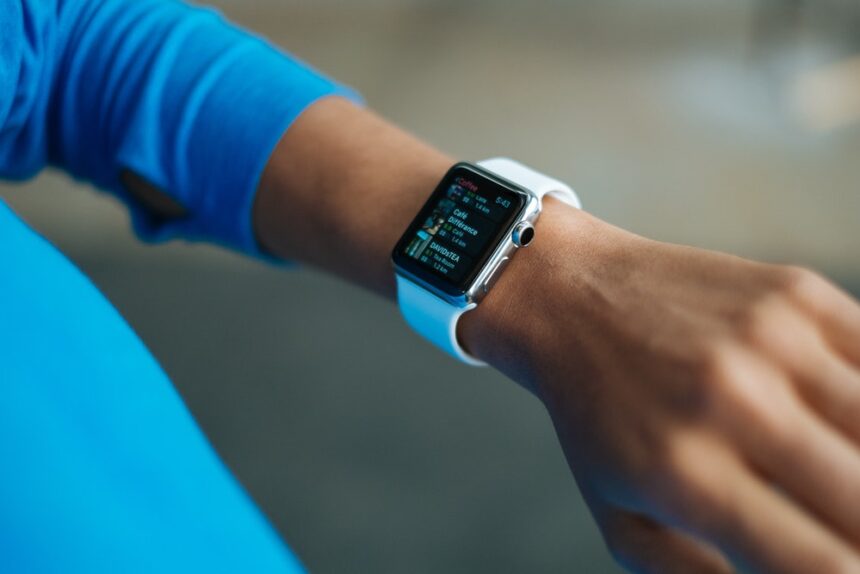Wearable tech has come a long way from the days of pedometers. Consumers now have an array of smart tools to boost quality of life, detect disease, and manage chronic conditions. All told, 225 million such devices will be sold this year. Although smartwatches represent more than a third of wearable spending, they’re actually the least interesting segment of the market. To get a glimpse of what wearables can do and where they’re headed, look to the medical market. Doctors and patients are using them to:
1. Transition from episodic to continuous care.
Until recently, patients with heart failure were sent home from the hospital with two things: a prescription and a checkup date. Whether the drugs were working wasn’t apparent until patients returned to their doctor weeks or months later. The shift toward value-based care has led providers to use wearables for continuous at-home monitoring. In conjunction with Mercy Virtual, population health management startup Myia Health has developed a kit for patients with chronic conditions like heart failure, COPD, and hypertension. The kit contains home hub tablet, a connected blood pressure cuff, a smart ring for measuring physical activity, and more. Then, from a connected dashboard, doctors can monitor patients using Myia’s technology for signs of worsening amongst their patients. Biometrics like heart rate, respiratory rate, and even motion or gait during walking are all indicative of a patient’s individual health status. As Myia collects more information, the system will only continuously learn and get better.
2. Minimize invasive procedures.
Because diabetics’ blood-glucose levels can change rapidly, they have to take measurements multiple times per day. The experience is painful, easy to forget, and in social situations, embarrassing. Although many diabetics still monitor their blood-glucose concentration with meters that draw blood, researchers at Ulsan National Institute of Science and Technology have developed a wearable solution: a smart contact lens that can detect glucose levels in patients’ tears. Any procedure that draws blood is dangerous. Wounds get infected. Especially when conducted at the hospital, they often require the attention of expensive specialists. Expect invasive procedures to be a hot target for wearables in the coming years.
3. Detect disease earlier.
With many cancers, the difference between life and death is how early it’s detected. Sadly, it’s often too late once a tumor becomes painful or visible to the naked eye. After his mother was diagnosed with breast cancer, Julián Ríos Cantú co-founded Higia Technologies at the age of 18. Higia has developed a bra insert that uses thermal imaging and artificial intelligence to detect abnormalities in breast tissue. Discreet enough to be worn with most bras, the inserts look for tissue temperature and density changes over time, Many doctors recommend that women get annual mammograms after age 45. But mammograms are notorious for false negatives, and time-point assessments mean breast cancer may go undetected for months. Wearables could provide a key breakthrough in the fight against cancer.
4. Provide prevention reminders.
Try as we might, most of us engage in behaviors we know are bad for our health. We eat fast food. We sit for extended periods of time. We drink too much alcohol. One behavior that skincare company L’Oreal is hoping to head off is sun overexposure. Its UV Sense wearable contains a battery-free sensor that detects ultraviolet radiation from the user’s thumbnail. Wearable for up to two weeks at a time, UV Sense shows users when and how much UV light they’re exposed to. In the future, patients with livers damaged by alcohol may use wearables that act like miniature breathalyzer, warning them whenever they take a drink. Already, certain fitness wearables remind users to get up and move if they’ve sat for too long.
5. Support people with disabilities.
Hearing aids were some of the first healthcare-specific wearables on the market. But for people with other sensory disabilities, wearable solutions have been slow to materialize. One startup improving quality of life for blind and sight-limited individuals is Aira. Aira combines augmented eyeglasses with guide services, helping people who can’t see know what’s ahead of them. Aira assistants can peer through the camera to help users read signs and open doors. Sensor-embedded suits may someday prevent people with tactile disabilities from accidentally injuring themselves. Wearables that analyze the air may warn people who’ve lost their sense of smell of things like gas leaks. The way patients receive care is changing. Wearable technologies are making it cheaper, easier, and less dangerous to manage chronic conditions. And for the patients who rely on them, they’re nothing short of life-changing.







